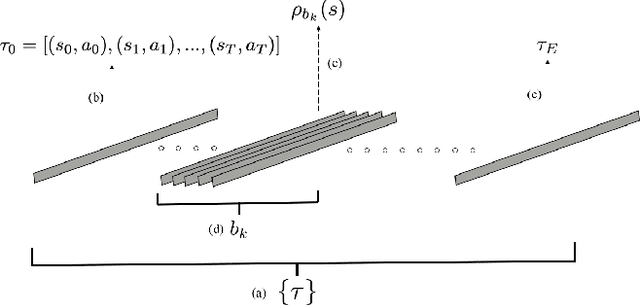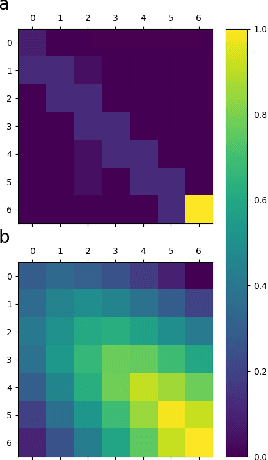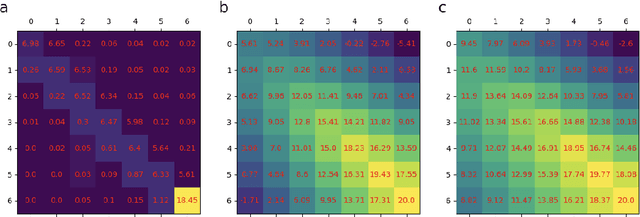Inverse Reinforcement Learning from Non-Stationary Learning Agents
Paper and Code
Oct 18, 2024



In this paper, we study an inverse reinforcement learning problem that involves learning the reward function of a learning agent using trajectory data collected while this agent is learning its optimal policy. To address this problem, we propose an inverse reinforcement learning method that allows us to estimate the policy parameters of the learning agent which can then be used to estimate its reward function. Our method relies on a new variant of the behavior cloning algorithm, which we call bundle behavior cloning, and uses a small number of trajectories generated by the learning agent's policy at different points in time to learn a set of policies that match the distribution of actions observed in the sampled trajectories. We then use the cloned policies to train a neural network model that estimates the reward function of the learning agent. We provide a theoretical analysis to show a complexity result on bound guarantees for our method that beats standard behavior cloning as well as numerical experiments for a reinforcement learning problem that validate the proposed method.
 Add to Chrome
Add to Chrome Add to Firefox
Add to Firefox Add to Edge
Add to Edge